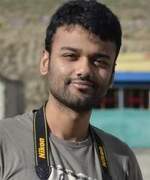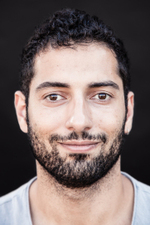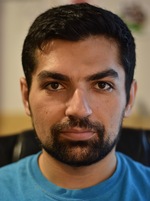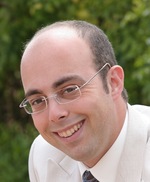About the Authors

Eshan Chattopadhyay
Assistant professor
Department of Computer Science
Cornell University
Ithaca, New York, USA
eshan[ta]cs[td]cornell[td]edu
https://www.cs.cornell.edu/~eshan/
Assistant professor
Department of Computer Science
Cornell University
Ithaca, New York, USA
eshan[ta]cs[td]cornell[td]edu
https://www.cs.cornell.edu/~eshan/
Eshan Chattopadhyay received his Ph.D. from UT Austin in 2016 under
the supervision of David Zuckerman. He was a postdoctoral researcher
at the Institute for Advanced Study, Princeton and the Simons
Institute for Theory of Computing till 2018. Since 2018, he has been a
faculty at Cornell University. His research interests lie primarily in
pseudorandomness and its applications to complexity theory,
cryptography, and coding theory. His hobbies include traveling and
playing cricket.

Pooya Hatami
Postdoctoral researcher
University of Texas, Austin
Texas, USA
pooyahat[ta]gmail[td]com
https://pooyahatami.org/
Postdoctoral researcher
University of Texas, Austin
Texas, USA
pooyahat[ta]gmail[td]com
https://pooyahatami.org/
Pooya Hatami is a postdoctoral researcher at UT Austin
hosted by David Zuckerman. He received his Ph.D. from the
University of Chicago in
2015 under the supervision of Alexander Razborov and Madhur Tulsiani.
He has also spent two years as a postdoctoral researcher
at the Institute for Advanced Study at Princeton and DIMACS at Rutgers
University. His research interests lie broadly in theoretical computer
science, particularly the role of pseudorandomness and randomness in
computational complexity. He spends most of his spare time climbing
rocks and plastic.

Kaave Hosseini
Ph.D. candidate
University of California, San Diego
California, USA
skhossei[ta]ucsd[td]edu
cseweb.ucsd.edu/~skhossei/
Ph.D. candidate
University of California, San Diego
California, USA
skhossei[ta]ucsd[td]edu
cseweb.ucsd.edu/~skhossei/
Kaave Hosseini is a Ph.D. candidate at UC San Diego under
the supervision of Shachar Lovett. He obtained his undergraduate degree
in mathematics and computer science at Sharif
University of Technoogy, Iran. His research interests lie in additive combinatorics and computational
complexity.
He is mostly interested in approximate algebraic structures,
the structure vs. randomness dichotomy,
and pseudorandomness. He likes world music and plays Djembe
(a West African drum), and also thinks
he is still young enough to be a good gymnast.

Shachar Lovett
Associate professor
University of California, San Diego
California, USA
slovett[ta]ucsd[td]edu
cseweb.ucsd.edu/~slovett/
Associate professor
University of California, San Diego
California, USA
slovett[ta]ucsd[td]edu
cseweb.ucsd.edu/~slovett/
Shachar Lovett received his Ph.D. from the
Weizmann Institute of Science in 2010 under the supervision of
Omer Reingold and Ran Raz. He was a postdoctoral researcher at
the Institute for Advanced Study until 2012. Since 2012, he has been
a faculty at the University of California, San Diego. He is a
recipient of an NSF CAREER award and a Sloan fellowship.
His research is broadly in theoretical computer science and
combinatorics. In particular: computational complexity, randomness and
pseudo-randomness,
algebraic constructions, coding theory, additive combinatorics and
combinatorial aspects of high-dimensional geometry.
He is happily married and has three kids.
